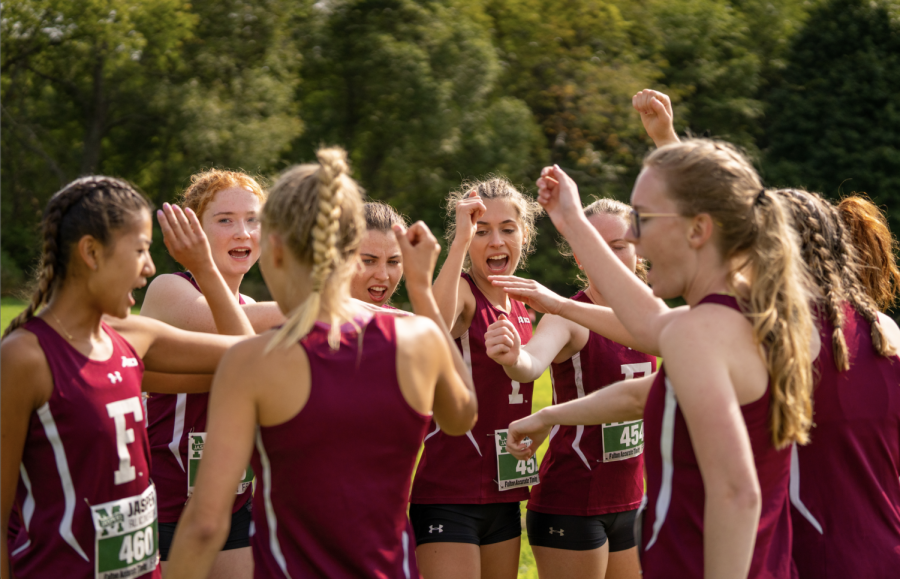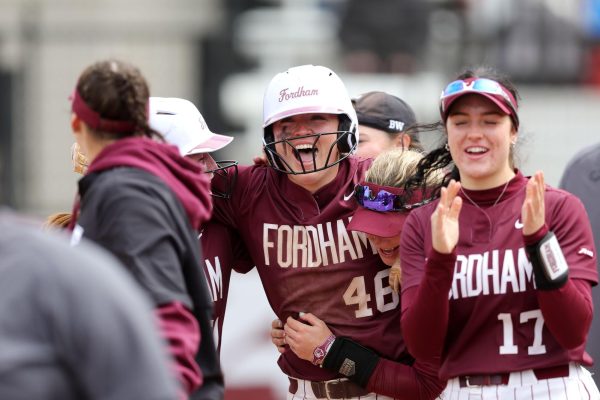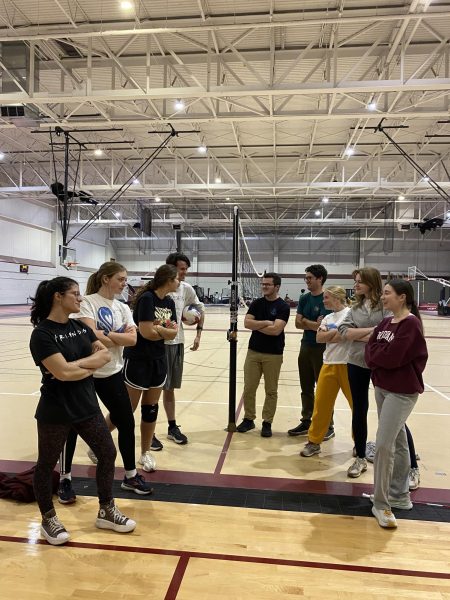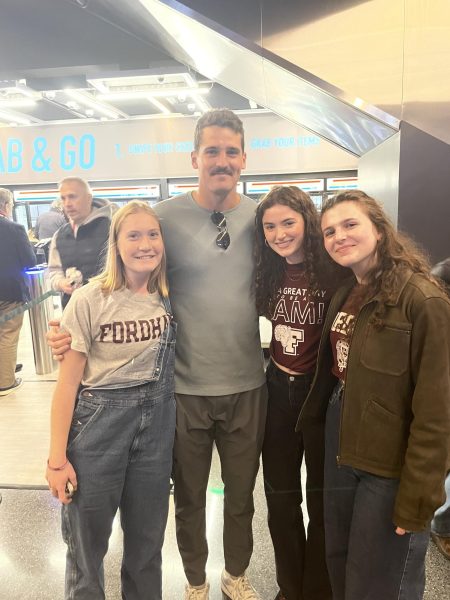Student Athlete Column: Faster Doesn’t Always Mean Better
This past weekend, my teammates and I went farming.
Fordham’s cross country team competed at the Jasper Fall XC Invite, a race my teammates have lovingly nicknamed “The Farm.” It’s a six kilometer course that winds around cow pastures and rolling hills. Last year, I finished with a time of 23:17 and placed 19th overall. This year I ran 23:34 and placed 18th. Slower than last year, for sure, but there was a significant difference between these two races. I felt 100 times happier after this year’s, despite not being around the time I wanted.
Don’t get me wrong, running fast times feels amazing. Your hard work pays off, you place well in the race and it helps boost the team’s performance as a whole. I’m always looking to improve. But I’ve come to realize that processing these races in a healthy manner matters a lot more.
Let me explain. Last year, I felt nothing but disappointment the moment I crossed the finish line. I saw my time and realized I hadn’t broken 23 minutes. I set that goal since I ran 22:30 two years prior, and I hated myself for not matching it. I spent the entire rest of the meet wondering what I had done wrong to have done so “badly.” I had forgotten it was literally my first 6K of the year, and with a little conversion magic, I also set a season’s best in the 5K. But all I focused on was it not being enough.
At the end of this year’s race, I felt nothing but joy. I raced smart, passing as many competitors as possible and using my speed to take advantage of the downhills. My race this year paid off, helping my team to a third place finish. I consider it a big step up from last year, where I accidentally started my finishing kick way too early. I was under the impression I was right near the finish line, not realizing I actually had another mile to go! Not my finest moment.
Last year, I came into my junior season with an immense amount of pressure on myself, mostly set by self-made standards. I put in the work in the offseason. I grinded out 40 mile weeks, pushed myself to the limit in every workout, the list goes on and on. And physically, I felt great: I had never been in better shape in my life.
But mentally, I was an absolute mess.
I dealt with some unexpected hardships in the months leading up to the season. I won’t get into it here, but let’s just say I came into the year wanting to run fast not just to run fast, but to prove to people that I could. I wanted my performances to tell the world “Look at me! I’m doing even better after the things I’ve gone through. Take that!” A word of advice — it may sound cool, but don’t compete with just vengeance. The people rooting against you do not deserve your energy at all. Dedicate it towards something more worthwhile.
I thought I would have to smash my personal records or be placing in the top 10 at every meet. When I didn’t meet every single standard, I crumbled. I didn’t even realize I was having my best year of running ever performance-wise. I was just so concerned about not doing well enough to show the world that I was okay.
I remember the moment everything came crashing down, the one where I started to realize I put myself through hell for no reason. I raced the 1K at the indoor Atlantic 10 Championship and failed to make the final. The top eight made it based on time, and I was 11th — the outside looking in. I ran the race in three minutes flat, my second fastest time ever. But to me it wasn’t enough, since whatever I did was never enough.
I remember sitting on a high jump mat in silence for nearly 15 minutes, my teammates cycling past me telling me not to be disappointed; there’s always more races. I shut it out. Tears streamed down my face as I recounted every workout leading up to the conference championships, thinking that I wasted all my hard work to drop the ball on the biggest stage. I felt like a failure because my fastest wasn’t fast enough.
It took me a while to figure out I had to reign it back. In April, I discovered I’d been working out on a nearly broken foot and needed to pause training for a bit. I was on the outside looking in again, but it ironically and completely shifted my mindset for the better. I realized how lucky I was to have the ability to run at all. During my time off, I found fulfillment in other hobbies, including WFUV and the paper. I made even more friends, produced content I felt proud of and realized I wasn’t defined by the times I ran.
I managed to overcome the injury to run outdoor A-10s in the 4x800m. Unfortunately, I ran a 2:35 split, nearly 20 seconds slower than what I ran three months prior. But after the race, I didn’t beat myself up in typical fashion. Instead, I felt a sense of pride that I toed the line after everything I’d been through.
I’m more than my races. It took me a while to figure that out. Sure, I’m proud of the athlete I am. But I’ve separated my performances from the opinions of others. I’m racing to make myself proud and to bring my team to new heights — and that’s what matters.
One of my coaches told us at the beginning of the season to strive towards progress rather than perfection. I’m getting a little better every week, and I’m excited to see how it all unfolds. Just like we did at The Farm, I’m cultivating a healthier, more forgiving mindset to bring me even more success.












































































































































































































